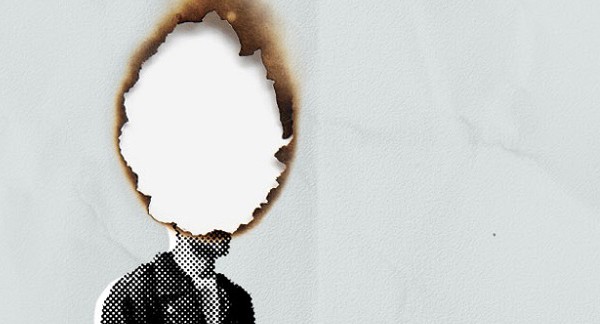Books & Culture
Liar Presents a Cascade of Remembered Moments, Some True, Some Not

by Brian Evenson

At a certain point a decade or more back, I turned my house and dog over to a friend while I taught a semester at University of Syracuse and then went off to an artist’s residency. The deal was that he’d take care of the dog and pay the utilities but otherwise live in my place rent-free. On the one hand it went pretty well — the dog survived and the house received no structural damage. On the other hand, he did apparently work on his engine on the floor and counters and proved in various ways that the idea that you can white-knuckle it through your addiction just doesn’t work. I’d hoped to give him a little breathing room to get his shit together, but as it turned out it just postponed the further spreading of his shit temporarily. What started as an attempt on my part and on his too, I still believe, to help one another out, turned out to be the beginning of the end of our friendship.
I thought about that reading Rob Roberge’s stunning memoir, Liar, and about other friends too, and about myself, my own tendencies toward deception that I’ve managed, with varying degrees of success at different moments to channel out of my life and into my own fiction. Liar is a book about addiction, lying, memory gaps, mental illness, about what it is to live subject to all of those things and still continue to try to put a self together. It’s about those moments when you’re unable to distinguish between the lies you tell about yourself to the world and what the truth really is, who you really are, if it’s fair to say you ever really are anyone.
Told in the second person, Liar offers an uncomfortable (and at other times an almost too familiar) intimacy. The “you” at once calls out to the reader, asking them to place themselves within the narrative, and keeps confronting us with difference: we know we’re not this guy. Or hope we aren’t. Or hope we’ve grown out of it. But Roberge knows he’s not that guy too, or kind of does, or used to before he began to fear that he’d told lies so many times that he’s not sure what the truth actually is. And now that years of drinking and drugs combined with concussions are likely to progressively erode his already tenuous memory, it’s hard for the you of Liar not only to know what the truth is, but also to know whether he’ll even be able to hold on to the lies, whether, after a while, he’ll even have a sense of self at all.
Liar presents a cascade of remembered moments, some true, some not. Over a series of eleven chapters and through more than a hundred subsections, the memoir moves backward and forward in time, giving bits of memories, recoiling, anticipating, stuttering from the present to the past and back again. He, or rather “you”, cycles through girlfriends, engages in erratic behavior, contemplates suicide, relapses, lies to friends, apologies, feels awful, lies to get the next drink, the next hit, lies about having had a drink, a hit, has a months-long affair with the mother of a friend, sleeps with his girlfriend’s best friend, goes to A.A. and N.A., stops going to N.A. and A.A., stops taking his meds, spasms, falls desperately in love, and loses his first girlfriend to an unsolved murder.
This is anything but a redemption memoir; Roberge gives the sense rather of someone holding on to life and kind of amazed they’ve managed. At the same time, there’s nothing show-offy here either, no attempt to brag about what depths you’ve plumbed. What makes the book appealing is not so much that it’s inspiring or that it depicts a VH1 nightmare descent: it’s more a desire to see how Roberge will or won’t bring all the book’s different threads together. He does so delicately, constructing a kind of airy, shimmering structure crisscrossed with ligatures, with events expanded or retold or speaking to other similar events from one end of the book to the other.
There’s something incredibly vulnerable about Roberge’s book, something incredibly appealing, and how he manages to pull this off remains a real tour de force. I think of my ex-friend, charismatic and appealing in the way Roberge is, and of the stories he told as well, but also think of the moment when, his own memory slipping, he began to tell the same stories over again, often word-for-word, without realizing he was doing so or that we’d head them a half dozen times before. Or of my friend’s grandfather, who, because of old age would do the same. The fear of losing one’s memory and mind is strong in the book, and is something I deeply relate to as an author and as a human, but that is coupled with a profound awareness on Roberge’s part, and a feeling that if you’re going to lose your memory you might at least try to tell your life as right as you can just this once, and be honest about not knowing what’s true and what’s not. Liar is disarming and genuine, moving and maddening.









